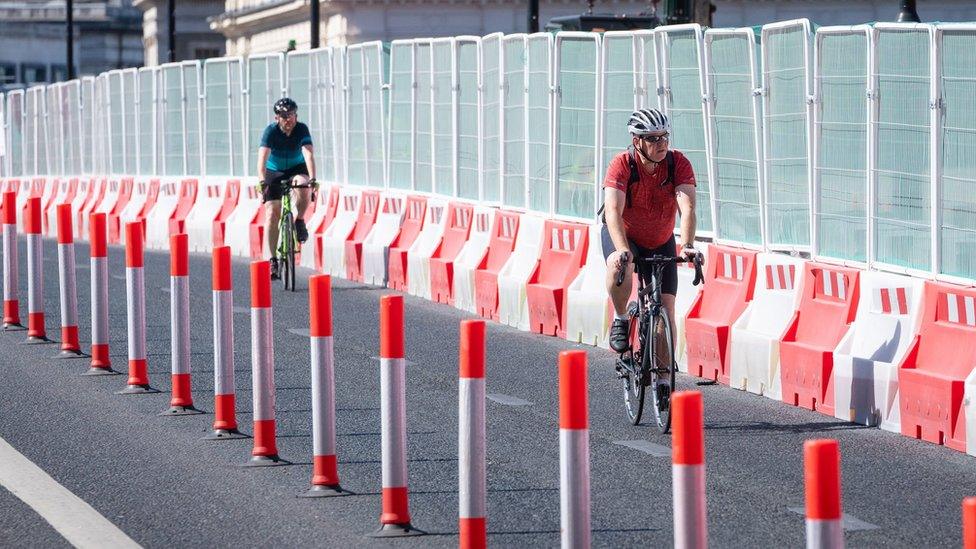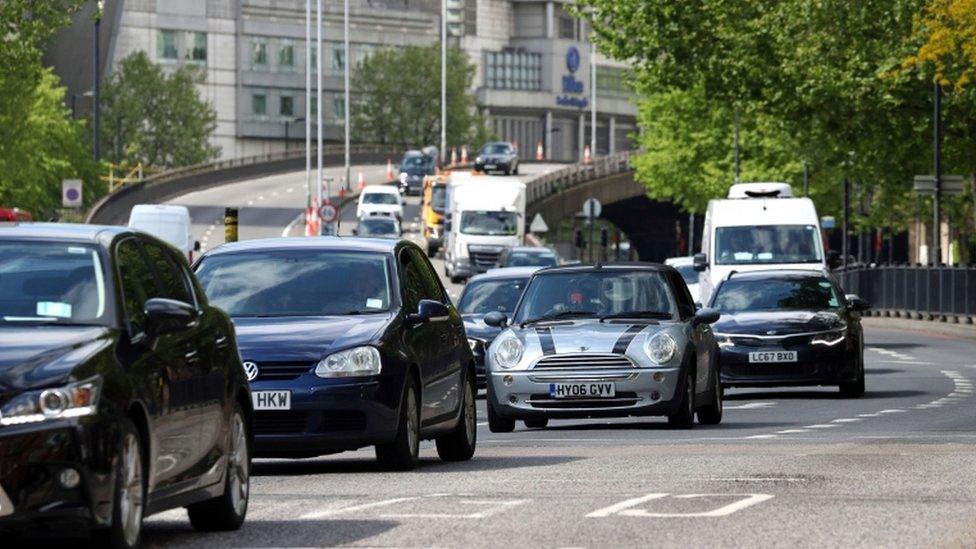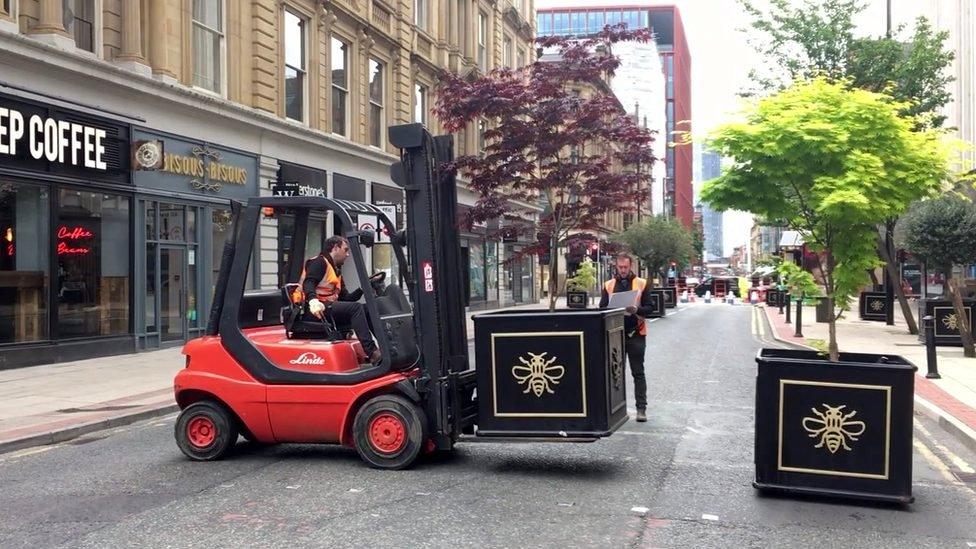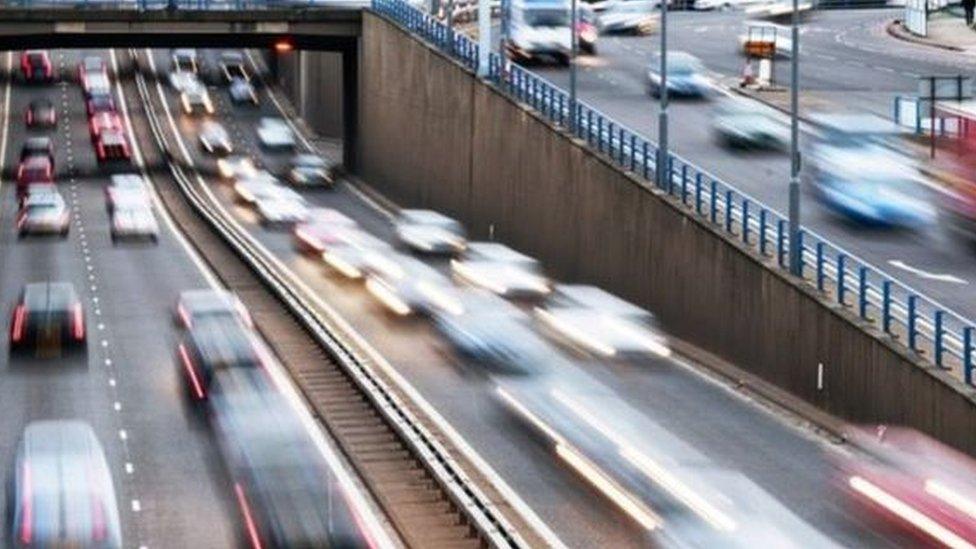Coronavirus: Drivers plan to walk more to keep cleaner air of lockdown - survey
- Published

Many British towns and cities are making more road space available for pedestrians and cyclists
British drivers are ready to change their behaviour to maintain the cleaner air of the lockdown and protect the environment, a survey suggests.
Of the 20,000 motorists polled for the AA, half said they would walk more and 40% intended to drive less.
Four in five would take some action to reduce their impact on air quality.
It comes after researchers warned the dramatic improvements in air quality in recent weeks could be quickly reversed as the coronavirus restrictions ease.
As well as walking more and driving less, a quarter of motorists said they planned to work from home more, another quarter said they would be flying less, while one in five plan to cycle more.
"We have all enjoyed the benefits of cleaner air during lockdown and it is gratifying that the vast majority of drivers want to do their bit to maintain the cleaner air," said AA president Edmund King.
"Walking and cycling more, coupled with less driving and more working from home, could have a significant effect on both reducing congestion and maintaining cleaner air."
Meanwhile, the AA is warning drivers in England - now able to drive to destinations for exercise or open-air recreation - against travelling to tourist destinations this Bank Holiday Monday.
"Drivers should think about how far they need to travel to enjoy the great outdoors," Mr King said.
Traffic surge fears
The UK government has pledged £250m for improvements in cycling and walking infrastructure and many British towns and cities are already making more road space available for pedestrians and those on bikes.
It is the first part of a £5bn investment announced in February, the Department for Transport said.
But the official advice from Transport Secretary Grant Shapps as some people start to go back to work is that people should drive rather than use public transport, when walking or cycling is not a viable option.
How will commuting change after lockdown?
Researchers warned that traffic could surge back onto the roads, in a study published last week, external.
They found the dramatic fall in traffic has been key to the 17% reduction in carbon dioxide emissions that was recorded at the peak of the coronavirus crisis in early April.
Surface transport emissions emissions - including vehicles and industry - declined by 43%, the same as the drop from industry and power generation combined.
By contrast, the fall in the emission from aviation only accounted for 10% of the decrease.
To avoid increases in traffic the AA is urging the government to find solutions to help people get around on journeys where walking and cycling are not an option.
It is calling for emergency park and cycle sites to be set up on the edge of cities.
But, the organisation warns, even if motorists want to get back in their cars, they may find getting them started after the weeks of lockdown difficult.
It reports an uptick in breakdowns since restrictions have been eased, as many vehicles left unused throughout lockdown were started for the first time.
The main cause, the AA says, is flat batteries.
If you are going to drive, it advises, check the tyre pressure, oil and coolant levels and top up washer fluid if needed.

A SIMPLE GUIDE: What are the symptoms?
RISK AT WORK: How exposed is your job?
HOW A VIRUS SPREADS: An explanation
RECOVERY: How long does it take to get better?
GLOBAL SPREAD: Tracking the pandemic

- Published19 May 2020

- Published16 May 2020

- Published8 April 2020
